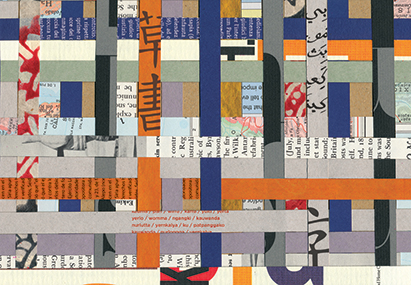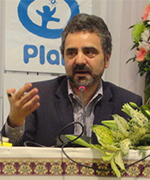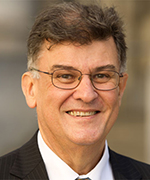Language Policy
 |
Cultivating Our Deepest Public Resource
Monday 20 November 20176.00pm-7.15pm |
Access Podcast HERE
In the past 15 years the field of language policy and planning has exited from relative isolation in arcane academic cloisters to become one of the urgent tasks of states, economic and educational institutions, policy bodies and national communities worldwide.
Once the almost exclusive focus of language policy was education, today major United Nations bodies, peace research agencies, international non-governmental organisations, corporations, and national communities have identified in language policy a critical but still not fully understood ‘technology’ for social cohesion. Pressure for language policy also derives from competitive economics and from sub-national desire to retain and deepen cultural vitality.
This lecture will discuss the benefits and need for a comprehensive and coordinated approach to what is in effect our deepest public resource. Language is public, shared and collective, within families, institutions, nations and economies, it is language that binds and governs the possibility of resilience, democracy and solidarity. An appreciation of these deeper and more extensive features of language is now growing rapidly across many international settings, and both negative and positive reactions to the power and promise of collective decisions about language is emerging.
A broad spectrum of claims on our deepest public resource includes citizenship procedures which increasingly require new immigrants to be subjected to language tests, economic think thanks which continually press for a human capital approach to language teaching and ethnic and indigenous who agitate for language policies to support the intergenerational maintenance of minority languages. We need only reflect that as many as 26 violent sub-national conflicts across the Asia Pacific have a strong dimension of language.
The panel will take a comparative and contrastive approach to the public resource of language, referring to the Australian innovation in LP, the critical new appreciation of language rights, especially in Southeast Asia, the new public regime of the global language order in which English must accommodate for a resurgent Chinese, and new technologies of multilingualism make new kinds of communication possible. Linked to this is the particular and immense experiment of Europe. The Research Centre for Languages and Cultures and its periphery, are both dependent on wise decisions about language to achieve the aspirations of politicians.
Article: 2016_Conflict_language_rights_and_education LPREN.pdf
Article: 2017_Resolving_ethnolinguistic_conflict_in_multi_ethnic_societies Nature_Human_Behaviour.pdf
Professor Joseph Lo Bianco
 Professor Joseph Lo Bianco, holds the chair of Language and Literacy Education at the University of Melbourne and is author of Australia’s 1987 National Policy on Languages. He is a language policy specialist with advising and consulting experience on language problems in many countries in SE Asia, Europe, and in two African settings. He is author of 35 books and major reports and more than 100 scholarly articles. Since 2009 he has been directing a major research and intervention program on peacebuilding in conflict zones in SE Asia, with particular focus on Myanmar, Thailand and Malaysia, for UNICEF, funded by the government of the Netherlands; and an Asia-wide project of ‘multilingual accommodation’ for senior policy makers across Asia for UNESCO.
Professor Joseph Lo Bianco, holds the chair of Language and Literacy Education at the University of Melbourne and is author of Australia’s 1987 National Policy on Languages. He is a language policy specialist with advising and consulting experience on language problems in many countries in SE Asia, Europe, and in two African settings. He is author of 35 books and major reports and more than 100 scholarly articles. Since 2009 he has been directing a major research and intervention program on peacebuilding in conflict zones in SE Asia, with particular focus on Myanmar, Thailand and Malaysia, for UNICEF, funded by the government of the Netherlands; and an Asia-wide project of ‘multilingual accommodation’ for senior policy makers across Asia for UNESCO.
Another major project has been LUCIDE, a European Commission funded activity for municipal level responses to vast and often undocumented migration in 12 European cities. He has three volumes in press: Peace Building and Language Policy, for Springer, 2018; Language Problems in Post-Revolutionary Tunisia, with F. Hillal, for Multilingual Matters, 2018; and The Cosmopolis: New Cities of Communication (tentative title), for Springer, 2019.
The Hon. Susan Ryan AO

The Hon. Susan Ryan AO was appointed as Australia’s first Age Discrimination Commissioner on 30 July 2011 for a five year term. In addition, she was appointed Disability Discrimination Commissioner, 12 July 2014. She concluded both terms 28 July 2016. As Australia’s first Age Discrimination Commissioner she was highly effective in drawing attention to the extent of discrimination against older people. She commissioned pioneering research into ageism and disability discrimination and conducted the first national enquiry into workplace discrimination against older Australians and Australians with disability. This resulted in the landmark report Willing to Work, which sets out national strategies to improve the economic participation of Australians as they age and people with disability.
From 1975 to 1988, Susan was Senator for the ACT, becoming the first woman to hold a Cabinet post in a federal Labor Government. She served in senior portfolios in the Hawke Government as Minister for Education and Youth Affairs, Minister Assisting the Prime Minister on the Status of Women and Special Minister of State. As Education Minister, Susan saw school retention rates double and universities and TAFEs grow significantly. She pioneered extensive anti-discrimination and equal opportunity legislation, including the landmark Sex Discrimination Act 1984 and the Affirmative Action Act 1986. She was awarded an AO for services to the Australian parliament in 1990. She has been awarded honorary doctorates from Macquarie University, University of Canberra, University of South Australia and the University of New South Wales.
Rev. Hon. Dr Lynn Arnold AO FAICD

Rev. Hon. Dr Lynn Arnold AO FAICD is Assistant Minister [Faith in the Public Square], St Peter’s Anglican Cathedral, Adelaide, Reader in Public Theology & Church History, St Barnabas Theological College, among many other roles in various organisations, locally and internationally. He is chair of the Research Centre for Languages & Cultures Advisory Group, University of South Australia.
In 2017, Lynn Arnold was appointed UNAA Ambassador for the promotion of Sustainable Development Goals. A long time member of the UNAA [SA], he has been State President in South Australia from 1975-78 and one of the national vice-presidents during that time.
Prior to embarking on the road to ordination, he was Chief Executive Officer of Anglicare SA from 2008 to mid-2012. In this role, Lynn was responsible for overseeing South Australia’s largest non-government agency promoting ‘justice, respect and fullness of life for all’.
Lynn holds a PhD (in Sociolinguistics), as well as a Bachelor of Arts and Bachelor of Education from the University of Adelaide. He also holds a diploma in Senior Company Administration from the Escuela Superior de la Alta Dirección de Empresas (ESADE) in Barcelona, Spain. In 2013 he completed a Graduate Diploma of Theology at St Barnabas Theological College, through Charles Sturt University, South Australia.
In 2004, he was awarded the Order of Australia (AO) for his services to Australia through the South Australian Parliament as Premier, and internationally through development and humanitarian aid assistance. In 2001 he received the Centenary Medal for his services to the Australian community.
Between 1979 and 1994 he served as a member of the South Australian Parliament including over 11 years in Cabinet. His service in government included ten years serving in a wide range of senior ministries (including Education, State Development and Agriculture), he also served as Premier in 1992-1993.
 |
|
Presented by The Bob Hawke Prime Ministerial Centre and the UniSA Research Centre for Languages and Cultures



